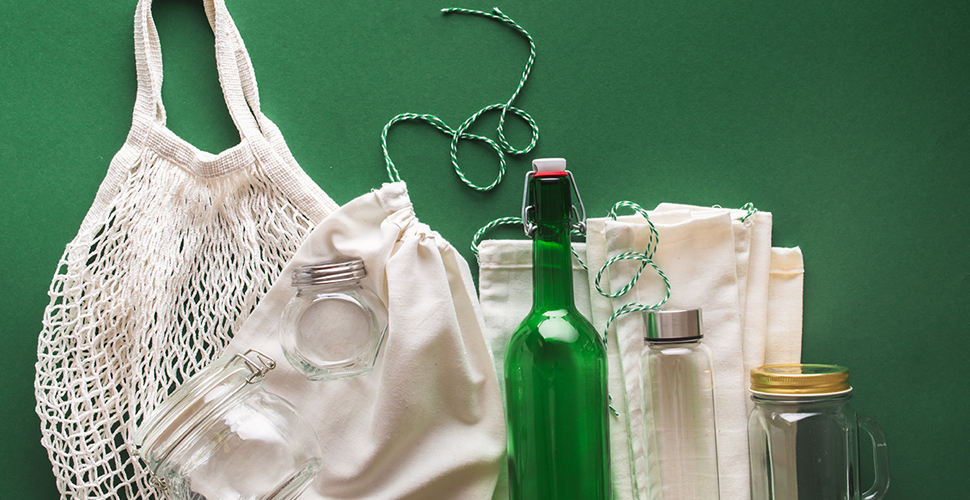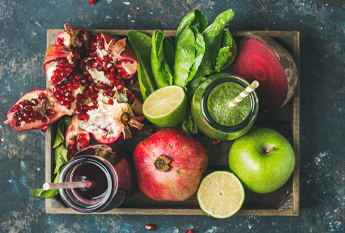Practical Recommendations For A Zero-Waste Life
When you hear the term “zero waste,” you might automatically think, like many people, that it means “no waste at all.” As this concept seems impossible, you may find it challenging to take the first step into a zero-waste life. The truth is that a zero waste/no waste household involves reusing products and sending as little as possible to landfills.
In other words, you can start to adopt this understanding into your life by opting for transforming the resources that you would normally discard. Even if you can't do this in one day, you can still acquire small habits that can make a long-term difference in both your home and your environment. Let's take a closer look at practical suggestions for easier ways to adopt a zero-waste approach.
Get started by getting rid of the surplus in your home
Discarding excess items in your home can allow you to evaluate which wastes accept the most space and make a simple situation assessment. When you pick up excess stuff and clutter, you can consider what you can do with them, rather than throwing them away. For example, you can donate certain items to charities, sell to thrift stores or sell them yourself, or reuse them by gifting them to loved ones. In this way, you can give yourself and your loved ones the opportunity to value items you don’t use while opening up more space for new experiences in your home.
Switch to solid shampoo and soaps
Many of us prefer bottled liquid soaps and shampoos because they are easier to use. But unfortunately, these are among the products that produce a lot of waste due to their packaging. However, when you use solid shampoos and soaps, you can literally use the product up to its end, instead of generating plastic waste. In this way, you will both produce less waste and maximise your product use. 😊
Invest in reusable glass products
Think about it… How much waste do you produce each month by buying water in plastic bottles? Plastic water bottles are among the biggest contributors to waste on the planet. You can ensure that all family members have a reusable water glass/bottle to help reduce the amount of plastic waste in dumpsters and eliminate plastic in the house. In this way, you can refill your water container instead of constantly buying plastic water bottles. A long-lasting bottle can provide for you and your family.
Quit ordering take-away food
Ordering food can be a difficult habit to break, especially when you are tired, as it saves time. Unfortunately, eating take-away meals means much more waste and waste due to plastic bags, cutlery and other items. You can try cooking your meals at home to reduce waste and plastic-disposable waste – you may also find yourself eating healthier meals. If you must order food from outside, you can opt for eco-friendly restaurants that use sustainable packing materials. food. Or you can bring your own cartons or pots to a restaurant and ask them to pack your food in these containers.
Keep in mind that quantity is important
When it comes to a zero-waste life, paying attention to the number of products you use is an effective way to save both money and the planet. Toothpaste, soap, face wash gel, shaving cream, toilet paper, detergent, paper towels… Trying to consciously reduce the use of such products can significantly reduce both waste and purchase frequency.
Select foods with minimum or no packaging
As you know, most of the food sold in shopping malls and grocery stores is in plastic packaging. As you move into a zero-waste lifestyle, you can be more aware of your shopping habits and focus on purchasing minimally packaged or unpackaged food. Since many products are sold fresh and unpackaged, you can visit local markets and grocery stores. In some neighbourhoods, you can find eco-friendly shops where products like dry legumes can be packaged in jars or bags that you bring from home.
Try to live without paper
Another effortless way to reduce waste while protecting trees and the environment is to go “paper free”. You can opt for digital delivery of your magazine and newspaper subscriptions, as well as selecting electronic invoices and receipts for your purchases. You may have noticed that many banks and ATMs offer environmentally friendly options in this regard. In cases where you need to use paper, it is useful to make sure that you use both sides of the paper and that you recycle it correctly when you are done.
Pay attention to your water consumption
This may seem like an obvious suggestion, but many of us still leave the tap on while we brush our teeth or clean the kitchen counter – in short, during activities in which we use water. However, you can save a significant amount of water simply by turning off the tap when you are not using it. Preferring the routine of a quick shower rather than a long bath can also have a similar effect. You can try to make it a habit in your daily routine.
Eat less meat
Many environmentally conscious people eat less meat in their effort to protect our planet. If you are not prepared to give up meat altogether, try eating meat fewer times per week or choose vegetarian options for breakfast and eat meat at dinner. You can start designing your meals with vegetable- and fruit-based preferences.
Store food correctly
Leftovers from the previous evening will be just as delicious if they are stored properly, thus offering you more value for money. According to the United States Environmental Protection Agency, the vast majority of the food we cook goes to waste! We can all work together to stop this.
Buy quality products
While higher quality products may be more expensive initially, the durability, functionality and longer life span of such products is likely to save you money in the long term. In addition, replacing various products – such as electronic appliances, cookware, clothing and furniture – less frequently generates less waste and is thus better for the environment.
Opt for repairing instead of replacing
If an electronic device breaks, see if it can be repaired before purchasing a new one. The same goes for clothing and other household items. For example, torn jeans or sheets can be easily mended. If an item cannot be repaired, consider using it for another purpose instead of discarding it. This new mindset is sure to extend into other areas of your life and will undoubtedly improve your creativity.
Focus on experiences instead of shopping
Many of us may soothe our sorrows or celebrate our success with shopping sprees. Next time something goes right – or very wrong – consider comforting or celebrating yourself with an experience! For example, sign up for a dance class, enjoy a night out in the city, or book a quiet weekend getaway. Reducing unnecessary purchases and focusing on experiences will improve your creativity instead of hurting your economy!
Bonus: You are not alone on this path!
Remember that the zero-waste lifestyle is a journey. Below are some useful local and foreign resources that can guide you along the way.
- Zero-Waste House (Foreign Source): Bea Johnson, the founder of this website, is a best-selling author and world-renowned speaker who is committed to inspiring others to live a zero-waste life.
- My Life Without Plastics (Foreign Source): Beth Terry, the person behind the My Plastic Free Life website, began writing the blog when she realized how much plastic waste she produced. Terry provides tips to help reduce the use of plastics.
- Zero waste (Foreign Source): On the website, Kathryn Kellogg aims to provide advice on how to reduce waste, while at the same time offering guidance on how to stay committed to an environmentally conscious life inside and outside.
- sifir.atik (Domestic Source): Waste-Free House was established to promote conscious consumption consisting of a simple life, few items, and materials that can return to nature, similar to the above sources.
- Waste-free Minimalist: Ceren Özcan Tatar, the founder of the blog, offers inspiration related to the zero-waste lifestyle via various topics such as ecological and regular life.
- Zero waste: Through this official resource, you can see the waste-free life campaigns carried out in our country and discover what actions you can take.







